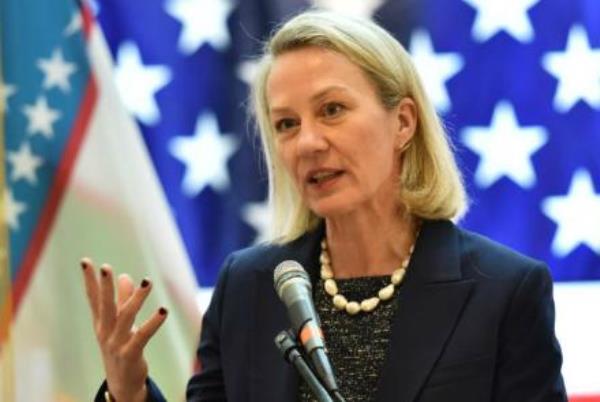Pressure by the United States continues because of the unsolved political “impasse” in Afghanistan between President Ashraf Ghani and Dr. Abdullah Abdullah, which deepened after the announcement of the Afghan election results in February.
“As the world gets slammed by COVID-19, with devastating economic consequences for all, donors are frustrated and fed up by personal agendas being advanced ahead of the welfare of the Afghan people,” US State Department’s Alice G. Wells tweeted on Monday, referring to the unsolved political tension in Afghanistan.
The US State Department has already announced that it will cut $1 billion in its annual aid to Afghanistan in reaction to the failure of Afghan leaders to end their political rift. The US government has said it will cut another $1 billion in 2021 if the situation continues.
On April 5, Wells in a tweet called for the formation of an inclusive government in Afghanistan.
“It can’t be business as usual for international donors in Afghanistan. International aid requires partnership with an inclusive government and we all must hold Afghan leaders accountable to agree on a governing arrangement,” Wells said.
Wells recently criticized a decision by the Afghan government to dismember the Ministry of Finance, citing a report by the US Institute of Peace (USIP) on Afghanistan.
“Troubling new USIP report that the Afghan govt is ‘eviscerating’ and ‘gravely weakening’ the Ministry of Finance by ‘carving out key constituent parts, putting them directly under the presidential palace.’ The Afghan people need accountable government,” Wells tweeted on April 3.
Last week, President Ghani said he has proposed the leadership of the High Council of Peace and Reconciliation to Abdullah Abdullah with the protocol of a vice president. Ghani added that he has also proposed that he will appoint influential aides of Abdullah Abdullah in the new cabinet.
At the suggestion of Afghan leaders including former president Hamid Karzai and former mujahideen leader Abdul Rab Rasul Sayyaf, President Ghani postponed the appointment of new cabinet members for five days to extend the window for talks on ending political tensions.













